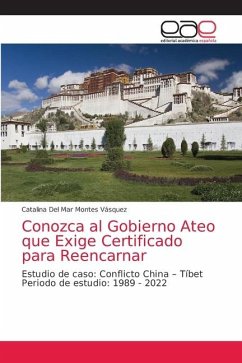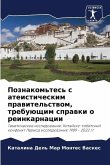The international mobilization for the respect of human rights due to the invasion of the Tibetan territory by the government of the Republic of China, is enhanced from the distinction of the XIV Dalai Lama with the Nobel Peace Prize in 1989, which illustrates well the idealistic strategies to structure the international system on moral parameters that include the self-determination of peoples, i.e. the independence of Tibet. However, this autonomist spirit clashes with the realistic measures of the State represented by the Chinese central government, focused on the interests of economic development and national sovereignty, which has made it prohibit reincarnation to all those Buddhists living outside the Republic, by means of the Decree issued in 2007. This highlights the desire to abolish the Tulku system, in force within Tibetan Buddhism since the 11th century, and the announcement made by the Dalai Lama since 2007, regarding the possibility of his 15th reincarnation in the body of a woman.








